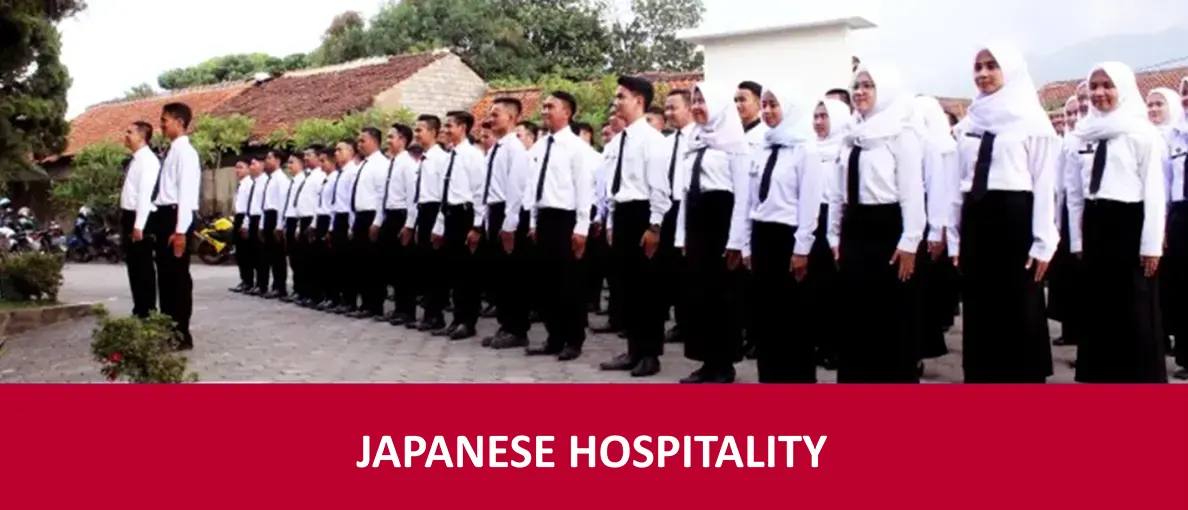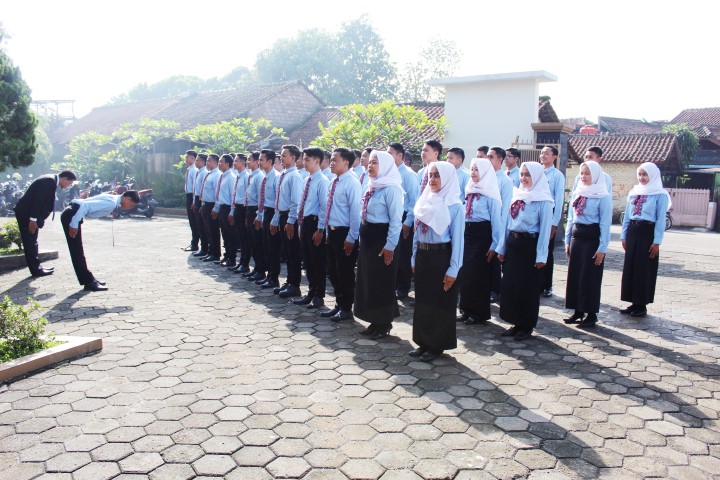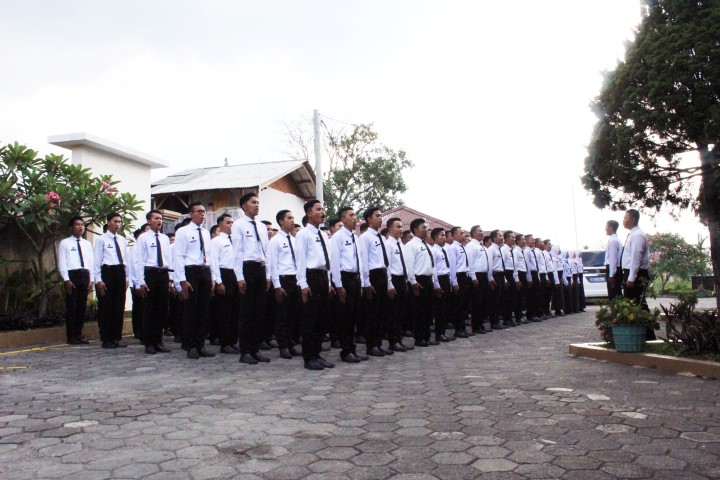
✅ CERTIFIED TRAINING PROGRAM: JAPANESE HOSPITALITY
PROGRAM TRAINING
JAPANESE HOSPITALITY
CAREER FIELDS:
• Food and Beverage Product
• Food and Beverage Service
• Kaigo (Elderly Caregiver)
#StudyForWork #ShortAndTargetedStudyForWork
What is the
IHCT – Bandung Japanese Hospitality Program?
IHCT – Bandung: We produce competent and globally competitive Japanese hospitality professionals.
As a high-quality educational institution, IHCT – Bandung is committed to being a trusted partner in shaping exceptional individuals with strong character who are ready to compete on the international stage, especially in the Japanese hospitality and restaurant industry. Through our efficient, structured, and industry-oriented educational program, we ensure every student saves time and money without sacrificing the quality of their learning.
By joining IHCT – Bandung, you don’t just get an education; you also get a future investment as a professional who is knowledgeable, skilled, and adaptable to the challenges of the working world. Make your dream of mastering the Japanese restaurant and hospitality industry a reality with us!
Why Work in Japan?
Japan’s population is shrinking year by year.
* From 2011 to 2015, Japan’s population decreased by one million people.
* In 2017, the population decreased by 227,000 people. The population is dominated by non-productive age groups. Data shows that 27% of the population is aged 65 or older, and this number continues to rise.
Japan is currently facing a significant shortage of productive-age human resources. This opens up huge opportunities for Indonesia’s younger generation to play an active role in Japan’s business industry through Tokutei Ginou (Specified Skilled Worker).
Tokutei Ginou is a new visa established in April 2019 for the placement of Specified Skilled Workers, which you can apply for to work and live in Japan for up to 5 years.
Program Urgency
Working abroad, including in Japan, is not easy. Many things need to be prepared carefully, such as your mindset and language skills. Japan is known for its strong culture and requires every worker from any country to master the Japanese language. This must be proven with a Japanese language proficiency certificate of at least JLPT (Japanese Language Proficiency Test) level N4 or JFT A2.
Program Duration
The effective program duration is 14 months on campus (before going to Japan). The program timeline is as follows:
2 MONTHS
Theory & Practice
- Theory and practice on campus.
6 MONTHS
Job Training
- Job training at 4 and 5-star hotels in Bandung.
6 MONTHS
Japanese Language and Culture
- An intensive program designed to equip students with practical Japanese language skills and a deep understanding of Japanese culture, especially as it relates to the hospitality and Japanese restaurant industry.
Note:
– First 3 months (to achieve N5)
– Second 3 months (to achieve N4)
Japanese Hospitality Majors
1. Food & Beverage Product
Designed specifically to produce professionals in the field of Food & Beverage Product (F&B Product) who are ready to work in restaurants and clinics for the elderly in Japan. Students will be equipped with the technical skills to create and develop food/beverage products according to industry demands.
2. Food & Beverage Service
Designed specifically to produce professionals in the field of Food & Beverage Service (F&B Service) who are ready to work in restaurants and clinics for the elderly in Japan. Students will be equipped with technical F&B-specific conversation skills (taking orders, recommending menus, handling guest complaints). The program also covers the use of keigo (polite language) and Japanese business etiquette.
Training Curriculum
ORIENTATION
- Basic introduction
- Heart management
- Team building
- Sports
- Introduction to basic Japanese language and culture
JAPANESE LANGUAGE
- Theory & Practice
- Hiragana, Katakana, Kanji
- Vocabulary
- Grammar
- Listening and comprehension skills
- Presentation
- Conversation
- Japanese for interviews
FOOD AND BEVERAGE (Theory & Practice)
- Food & Beverage Service
- Food & Beverage Product
OTHER (Theory & Practice)
- Barista
Training Curriculum
JAPANESE CULTURE
- Theory & Practice
- Aisatsu (greetings)
- Chorei (morning assembly)
- Souji (cleaning)
- 5S (workplace organization principles)
- Horenso (reporting, communication, and consultation principles)
- Kaizen (quality improvement principles)
- Kisoku o mamoru (rule adherence)
MENTAL CHARACTER
- Theory & Practice
- Reading the Quran
- Motivation
- Moral Education
- Psychology of Service
Training Direction and Goals
THE 4 “READY” PRINCIPLES
1. Ready Mentally, Physically, and Spiritually
Have a pure intention, a clear purpose, be able to manage one’s heart, have a strong physique, and never give up in the face of any challenge.
2. Ready with Language Skills
Master reading and writing skills, acquire basic Japanese language knowledge and proficiency, and be ready to take the Japanese Language Proficiency Test Level 4 / JFT A2 / JLPT.
3. Ready with Cultural Knowledge
Understand basic knowledge about Japan and the Japanese people, including the discipline, customs, etiquette, and work ethic required for life in Japan, both in the workplace and in society.
4. 4. Ready with Required Documents to Work in Japan
Ensure all necessary documents for the departure process to Japan are complete and without issues.
• JAPAN PROGRAM SCHEME
A. NIHONGO GAKKOU (School While Working in Japan)
For high school graduates and equivalent)
1. Category
• School & Work in Japan
2. Target
• Learn Japanese Language + Culture
• School While Working in Japan
3. Program Orientation
• Japanese Language School in Japan, Work in Japan
Work Fields:
• Food and Beverage Product
• Food and Beverage Service
• Kaigo (Elderly Care Clinic)
—
* Certificate of Eligibility (CoE):** A document issued by the Japanese Immigration Authority as proof that a foreign national is allowed to enter Japan for their stated purpose.
B. TOKUTEI GINOU (Working in Japan)
IHCT – JAPANESE HOSPITALITY (For high school graduates and equivalent)
1. Process
Phase 1, activities:
• Medical Check-up I (Thorax; HBsAg; Urine; HIV), Cost Rp. 600,000,-.
Note: If deemed FIT, proceed to Phase 2.
Phase 2, activities:
• Psychological Test;
• Basic Math Test;
• IQ Test;
• Personality Test;
• Physical Test;
• Interview.
Note: For those who PASS, proceed to Phase 3.
Phase 3, activities:
• Registration Fee Process;
• Uniform & Book Fee Process;
• Collection of Required Documents.
Phase 4, activities:
• Initial Meeting / Meeting for Parents/Guardians & Japanese Program Participants;
• Statement of Willingness to Participate in the Program.
Phase 5, activities:
• Orientation
• Learning Program
2. Target
• Learn Japanese Language + Culture
• Work in Japan
3. Program Orientation
-> Work in Japan
Work Fields:
• Food and Beverage Product
• Food and Beverage Service
• Kaigo (Elderly Care Clinic)
—
* SSW/PBS (Specified Skilled Workers/Pekerja Berketerampilan Spesifik): A new immigration policy from the Japanese Government introducing two new visa/residency status categories for foreign workers in Japan: skilled workers/SSW(i) and expert workers/SSW(ii).
** Certificate of Eligibility (CoE):
A document issued by the Japanese Immigration Authority as proof that a foreign national is allowed to enter Japan for their stated purpose.
Program Facilities
Dormitory
For program participants, the dormitory is part of the educational activities during the program (theory and practice).
The dormitory fee is Rp. 400,000,-/month.
Gallery of Dormitory Habitual Activities







BATCH QUOTA
- Nihongo Gakkou: 25-30 seats (adjusting to class conditions)
- Tokutei Ginou: 25-30 seats (adjusting to class conditions)
Requirements:
General
- Male/Female
- Graduates of High School / Vocational High School / Islamic High School / EQUIVALENT / Diploma 3 / Bachelor’s Degree
- Age 18 – 30 years old
- Height 160 cm (men) & 155 cm (women)
- Physically healthy & without disability
- Copy of last diploma (legalized and including the original)
- Copy of birth certificate (and including the original)
- Copy of family card (and including the original)
- Copy of e-KTP (and including the original)
- Copy of High School / Vocational High School / Islamic High School / EQUIVALENT report cards (legalized and including the original) Semester 6
- Original Police Record Certificate (SKCK) from the Police Station
Contact us for a consultation on the details of the Japanese Hospitality program fees.












Register Now!
Ready to Make a Real Change? Japan is Waiting for You!
IHCT – Bandung, the closest partner for the younger generation who want to work in domestic and overseas hotels and cruise ships since 1997.
Address:
IHCT – Bandung
Pajagalan Street No. 165 Banjaran, District. Banjaran, Kab. Bandung 40377, West Java Indonesia






